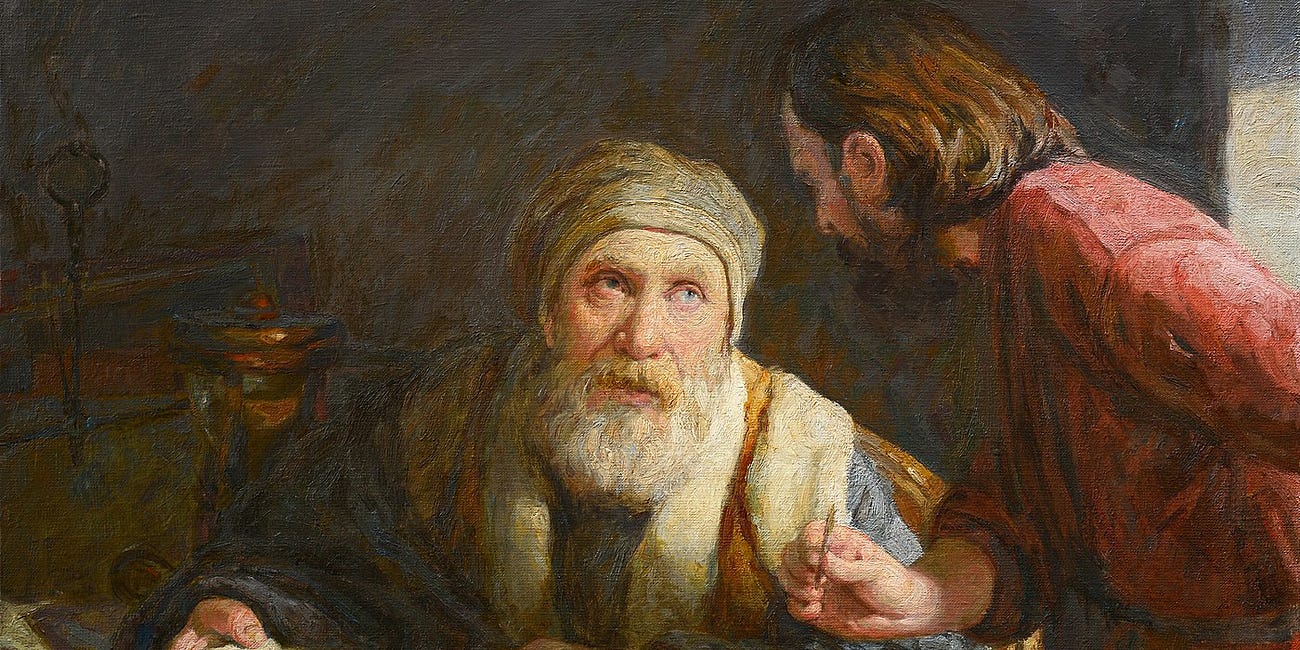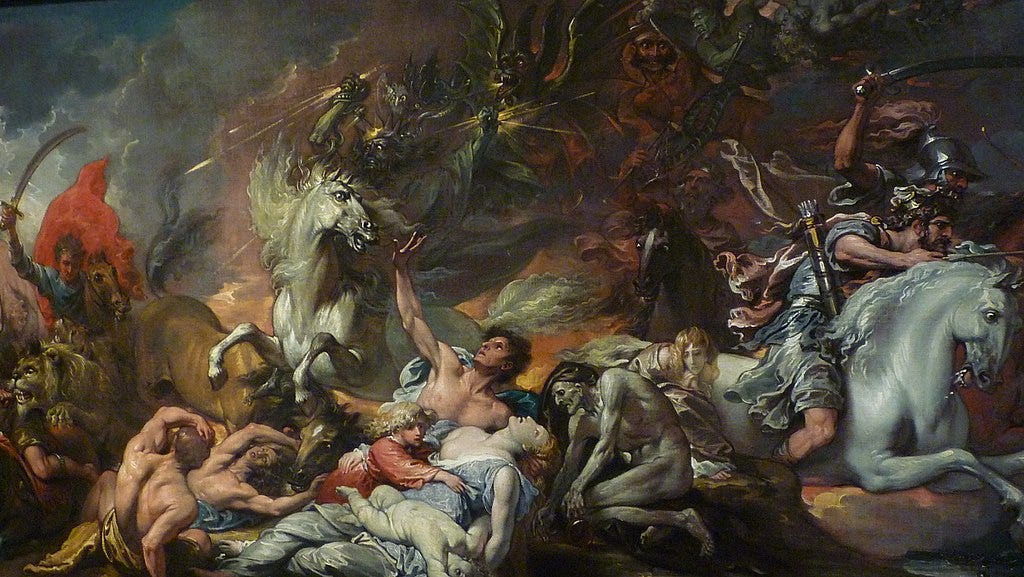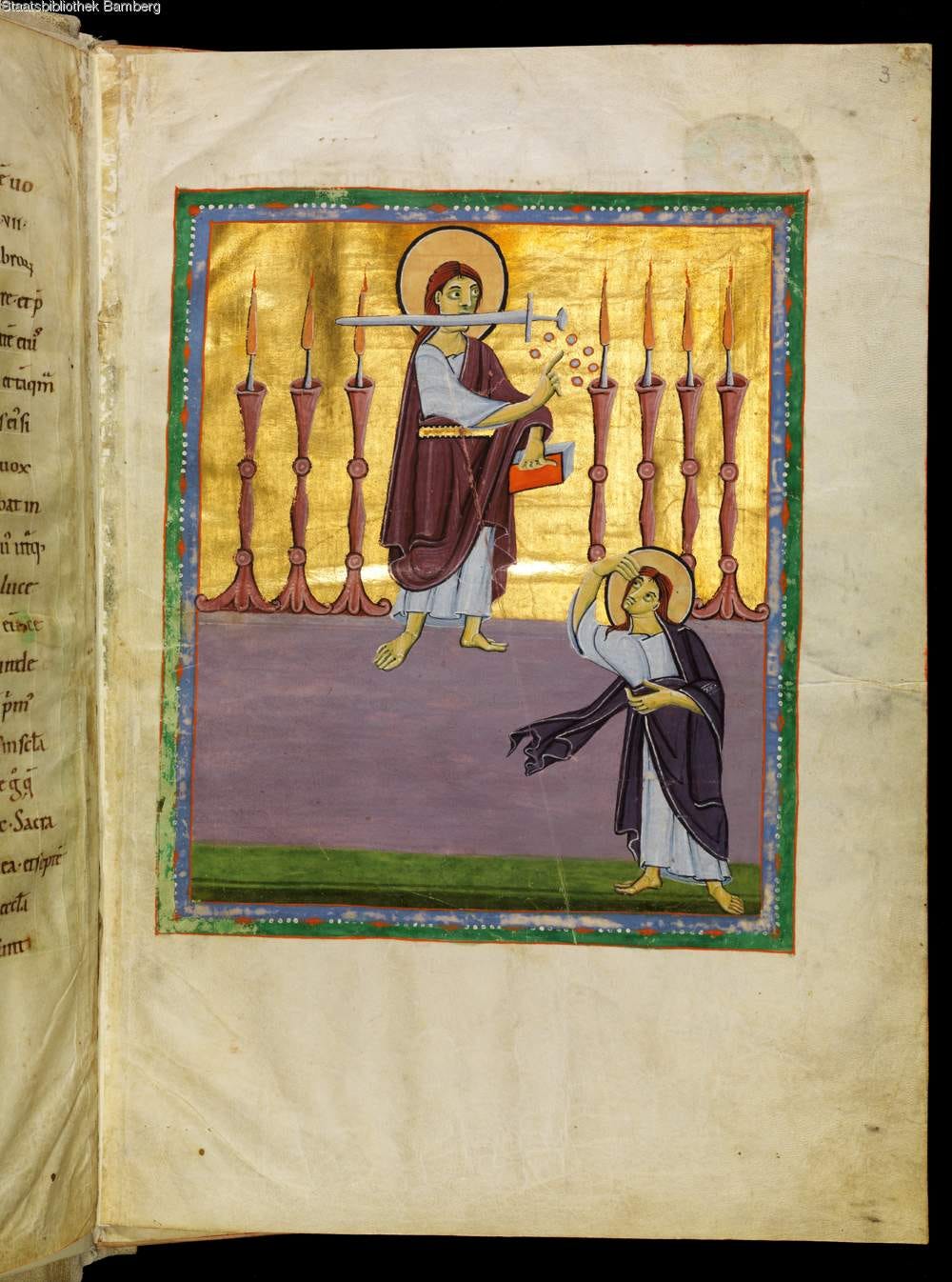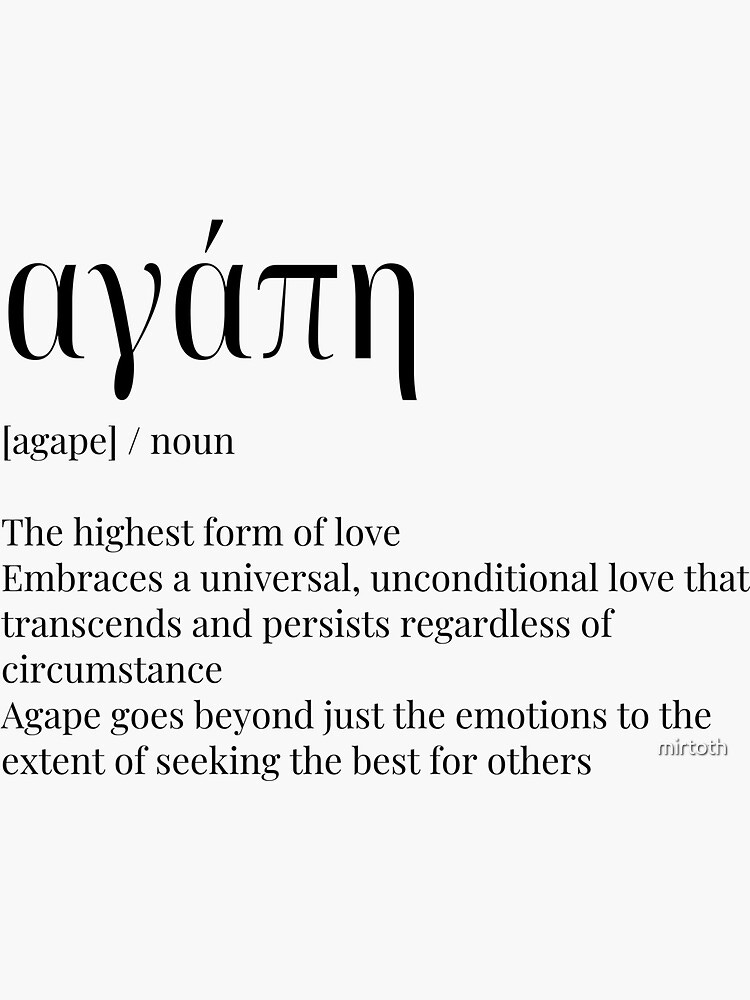G-d is in Control
second sermon reflection for the week ending September 21st, 2025
I decided to write two sermon reflections for this week.
You can find the first sermon reflection at the link below.
This second missive of the day contains my reflection on Pastor Jeremy’s sermon on Revelation 1:1-8. This week our church begins a new sermon series, having finished the Book of Matthew and Kingdom Culture we now move onto the Book of Revelations and Fuel For The Seven Churches of Revelation.
Artwork: Death on the Pale Horse by Benjamin West (1817), Pennsylvania Academy of the Fine Arts, Philadelphia
Reader, I’ll be honest. Revelations has always wigged me out. In fact, growing up as a Catholic, I learned to approach this book of the Bible with caution, because of its symbolism and complexity. It’s a target of abuse and misinterpretation by fundamentalists, and so I was taught to approach this book of the Bible with caution and respect. As Pastor Jeremy reminds us, Revelations belongs to a genre of literature called the apocalyptic literature genre. The book of Revelations describes the visions its author had about future events—it uses symbology to convey things that will happen in the spiritual realm.
Revelation 1:1-8
Prologue
1 The revelation from Jesus Christ, which God gave him to show his servants what must soon take place. He made it known by sending his angel to his servant John, 2 who testifies to everything he saw—that is, the word of God and the testimony of Jesus Christ.3 Blessed is the one who reads aloud the words of this prophecy, and blessed are those who hear it and take to heart what is written in it, because the time is near.
Greetings and Doxology
4 John,
To the seven churches in the province of Asia:
Grace and peace to you from him who is, and who was, and who is to come, and from the seven spirits[a] before his throne, 5 and from Jesus Christ, who is the faithful witness, the firstborn from the dead, and the ruler of the kings of the earth.
To him who loves us and has freed us from our sins by his blood,6 and has made us to be a kingdom and priests to serve his God and Father—to him be glory and power for ever and ever! Amen.
7 “Look, he is coming with the clouds,”
and “every eye will see him,
even those who pierced him”;
and all peoples on earth “will mourn because of him.”
So shall it be! Amen.
8 “I am the Alpha and the Omega,” says the Lord God, “who is, and who was, and who is to come, the Almighty.”
“My spirit cannot accommodate this book,” said Luther about the Book of Revelations. He had complex relationship with this book of the Bible, finding the symbolism difficult and disturbing. Over time he changed his views, though, he always considered this book less important to the Biblical canon.
Pastor Jeremy describes the book of Revelations as a letter written to specific people at a specific time. In particular, Revelations addresses seven churches in Asia Minor (modern day Turkey) during the reign of emperor Domitian. At a time when imperial edicts demanded worship of the emperor as a living god, Christians faced persecution and felt fearful and also much trepidation about their religious culture and practise, as they struggled against the temptation of worshipping the idolatrous secular culture in which they lived.
Lamp stand in Revelations refer to the churches, meant to shine the light of G-d into the darkness of world. Pastor Jeremy reminds us that Matthew 5:14 says “You are the light of the world. A town built on a hill cannot be hidden.” Interestingly, the instructions given in Exodus call for crafting of the lamp stand from a single block of beaten gold. Perhaps we can infer some symbolism to the Divine here? One block of gold to represent One G-d, the single source of light for all creation.
The light is where you walk, reader. When you lose sight of Jesus your light dims.
Artwork :: The Son of Man and the seven lampstands, c. 1000 AD, Bamberger Apokalypse Folio 3 recto, Bamberg, Staatsbibliothek, MS A. II. 42
What fuels the church? What keeps the church burning bright? Pastor Jeremy lists the seven church lamp stands.
Love (Ephesus)
Faithfulness (Smyrna)
Truth (Pergamum)
Purity (Thyatira)
Alertness (Sardis)
Endurance (Philadelphia)
Wholeheartedness (Laodicea)
We must always remember two things. Jesus has already come. He is coming again. The repeated formula throughout the New Testament, Grace and Peace, especially the Pauline texts reminds us of the scandalous and mysterious nature of Divine mercy. “Our lives are a product unearned mercy,” says Pastor Jeremy. Remember, reader — mercy, not merit.
How do we describe Jesus, then? We describe Him as the One who Was and Is and Is To Come. We describe Him as pre-existed, always there, from the moment of creation when He spoke everything into being. We describe Jesus as Agent of creation. Jesus holds all things together. As Paul wrote in Colossians 1:15-17, 15 The Son is the image of the invisible God, the firstborn over all creation. 16 For in him all things were created: things in heaven and on earth, visible and invisible, whether thrones or powers or rulers or authorities; all things have been created through him and for him. 17 He is before all things, and in him all things hold together.18
Image: via NIV Bible Blog
“Grace is not a prize for the worthy but a gift for the unworthy.” — Brennan Manning
Pastor Jeremy reminds us that G-d operates on a different time line than we do. In fact, In 2 Peter 3:8 Peter writes, but do not forget this one thing, dear friends: With the Lord a day is like a thousand years, and a thousand years are like a day. Patience, dear reader. I have written several times in this publication about the spiritual importance of patience. I repeated Pastor Derek Vreeland’s wise words about waiting as spiritual formation, G-d gives us time to give birth to ourselves, all creation groans as we await His coming.
When we speak of Love in Christianity, we mean the Greek word, agape. Agape implies volition, not mere sentiment. Agape means service, action, and self sacrifice. We can never forget that Love motivated G-d to give His precious gift to us, as per John 3:16, for God so loved the world that he gave his one and only Son,that whoever believes in him shall not perish but have eternal life.
Line 7 of today’s passage says He will come with the clouds. What does this mean? Well, it means that, when Jesus comes again, all will see Him. As Paul writes in his Epistle to the Philippians 2:9-11, 9 therefore God exalted him to the highest place
and gave him the name that is above every name, 10 that at the name of Jesus every knee should bow, in heaven and on earth and under the earth, 11 and every tongue acknowledge that Jesus Christ is Lord, to the glory of God the Father.
Jesus will return, all will see Him, all will worship Him.
Pastor Jeremy reminds us that the word for worship in Greek, proskuneo (προσκυνέω) … means to bow down, kiss the hand, or prostrate oneself as a sign of reverence and devotion. Proskuneo does not refer to an emotion, it refers to an act. Similar to Agape— volitional as opposed to sentimental.
My take from this sermon hinges on the relief that, instead of a frightening and horrific prophecy, I can see the Book of Revelations as a reminder that G-d is in Charge, and as a result I can have peace in my heart, rather than fear, because I know G-d mercy and love and faithfulness.
Social justice warriors in our secular political culture have become addicted to fixing things, even when beyond their control. Quite often we see SJWs train and direct their energies to external sources, whilst neglecting their own internal locus of control. SJWs try to take the place of G-d and they fail. In the failure of their self worship, they falter because they abandon themselves and inevitably fall into despair. Like the Pharisees in the today’s first sermon reflection, SJWs put all into their goodness and merit, they reject mercy, they refuse to search for opportunities to gain unearned mercy. They refuse to search within themselves for transformative opportunities that draw them closer to G-d.
So, what’s the overwhelming message from today’s two sermons?
Mercy not Merit.
I’ll leave you with the song that Pastor Jeremy felt on his heart this past week.
Alternatively, you can support this endeavour via Buy Me A Coffee.







